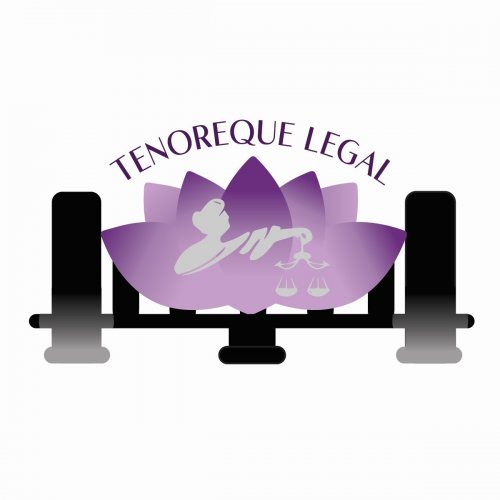Best ADR Mediation & Arbitration Lawyers in Trinidad and Tobago
Share your needs with us, get contacted by law firms.
Free. Takes 2 min.
Or refine your search by selecting a city:
List of the best lawyers in Trinidad and Tobago
About ADR Mediation & Arbitration Law in Trinidad and Tobago
Alternative Dispute Resolution (ADR) encompasses methods such as mediation and arbitration to resolve disputes without resorting to litigation. In Trinidad and Tobago, ADR has grown significantly as an effective alternative to the often lengthy and costly court processes. Mediation involves a neutral third-party facilitating negotiations between disputing parties to reach a mutually agreeable solution. Arbitration, on the other hand, involves a neutral third party, the arbitrator, making a binding decision after considering the evidence and arguments presented.
Why You May Need a Lawyer
While ADR offers a less formal and more cost-effective dispute resolution avenue, engaging a lawyer may be necessary in several scenarios:
- To understand the intricacies of the ADR process and the potential outcomes.
- When drafting or reviewing contracts that require a mediation or arbitration clause.
- To represent personal interests during mediation or arbitration sessions.
- To explore options for appealing an arbitrator’s decision, if allowed under the mediation agreement.
Local Laws Overview
In Trinidad and Tobago, the use of ADR is encouraged under various laws and institutional frameworks to resolve disputes efficiently. Key aspects include:
- The Mediation Act, which provides a legal framework for mediation proceedings and the establishment of a Mediation Board to oversee accredited mediators.
- The Arbitration Act, which governs the arbitration process, allowing parties to select arbitrators, set arbitration schedules, and binding decisions that are enforceable as court judgements.
- Governmental policies promoting ADR in areas like family disputes, commercial disputes, and employment disagreements to minimize court backlog and encourage amicable resolutions.
Frequently Asked Questions
What is the difference between mediation and arbitration?
Mediation is a facilitative process where a mediator assists the parties in reaching a voluntary agreement, while arbitration involves a decision by an arbitrator, which is usually binding.
Is an arbitrator's decision final?
Yes, in most cases, an arbitrator's decision is final and binding, with limited options for appeal as outlined in the arbitration agreement.
Do I need a lawyer for mediation?
While not mandatory, having a lawyer can help protect your interests and ensure that the mediated agreements are legally sound.
How do I enforce an arbitration award?
An arbitration award can be enforced in the same manner as a court judgement, through the court system of Trinidad and Tobago if necessary.
Can ADR be used for any type of dispute?
ADR is suitable for a wide range of disputes, including commercial, family, workplace, and contractual disputes, but may not be suitable for certain criminal or constitutional matters.
What is the role of a mediator?
A mediator facilitates discussions, helps clarify issues, and works with the parties to find mutually acceptable solutions without imposing a decision.
Can I appeal a mediation outcome?
Mediation outcomes are not binding until documented in an agreement; however, parties can choose not to sign if they are unsatisfied with the outcome.
What if one party refuses to participate in ADR?
ADR typically requires the consent of all parties involved. If one party refuses, traditional litigation might be necessary unless arbitration is contractually mandated.
How long do ADR processes typically take?
The duration of ADR processes varies depending on the complexity of the case, but they are generally quicker than traditional litigation.
Are ADR proceedings confidential?
Yes, both mediation and arbitration proceedings are private and confidential, helping to preserve the parties' privacy compared to court litigations.
Additional Resources
Consider reaching out to the following resources for more information or legal advice on ADR in Trinidad and Tobago:
- The Mediation Board of Trinidad and Tobago: Oversees the accreditation of mediators.
- Ministry of the Attorney General and Legal Affairs: Provides guidance and educational resources on ADR.
- Trinidad and Tobago Chamber of Industry and Commerce: Offers arbitration services for commercial disputes.
Next Steps
If you require legal assistance with ADR mediation and arbitration in Trinidad and Tobago, follow these steps:
- Identify a lawyer with experience in ADR to guide you through the process.
- Gather all necessary documents related to your dispute, including contracts and correspondence.
- Consider whether mediation or arbitration is more suitable for your case based on the nature of your dispute.
- Contact relevant ADR institutions or legal bodies for specific procedural guidance and support.
- Prepare for sessions by clearly defining your objectives and desired outcomes.
Lawzana helps you find the best lawyers and law firms in Trinidad and Tobago through a curated and pre-screened list of qualified legal professionals. Our platform offers rankings and detailed profiles of attorneys and law firms, allowing you to compare based on practice areas, including ADR Mediation & Arbitration , experience, and client feedback.
Each profile includes a description of the firm's areas of practice, client reviews, team members and partners, year of establishment, spoken languages, office locations, contact information, social media presence, and any published articles or resources. Most firms on our platform speak English and are experienced in both local and international legal matters.
Get a quote from top-rated law firms in Trinidad and Tobago — quickly, securely, and without unnecessary hassle.
Disclaimer:
The information provided on this page is for general informational purposes only and does not constitute legal advice. While we strive to ensure the accuracy and relevance of the content, legal information may change over time, and interpretations of the law can vary. You should always consult with a qualified legal professional for advice specific to your situation.
We disclaim all liability for actions taken or not taken based on the content of this page. If you believe any information is incorrect or outdated, please contact us, and we will review and update it where appropriate.
Browse adr mediation & arbitration law firms by city in Trinidad and Tobago
Refine your search by selecting a city.














